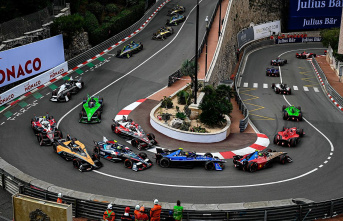Germany bids farewell to the coal. In January, the Federal government has passed a draft law that foresees the end of the climate-damaging production of electricity from coal in Germany no later than 2038. And Switzerland?
While in Germany, produced with coal power, coal is burned but all – for the production of heat in industrial processes. Between 2014 and 2018, an average of 188’000 tons of coal were imported in Switzerland, and roughly 0.3 million tons of CO2 emitted, which corresponds to almost one percent of the total emissions in our country. By 2025, is set to end. SP national councillor Mathias Reynard filed Friday a request. The CO2 act, the national Council next week, will be supplemented by a corresponding passage. The ban would apply to the Import, removal, and usage in Switzerland.
From Germany and South Africa
hardest hit Holcim , the largest domestic cement producer would be. It is currently importing about 100 000 tonnes of brown coal from the Ruhr area. Spokeswoman Nadia Bohli says, a short-term import would affect the prohibition of the operation of the massif and also the CO2 emissions increase. The company would be obliged to procure Alternatives from more distant destinations and facilities, which are generally less CO2-efficient than those in Switzerland. "The CO2 footprint would be increased." Holcim's own information according to for years to replace coal with alternative fuels such as biomass, and in the meantime, has substituted more than 50 per cent of its traditional fossil fuels. "Our goal is to replace fossil fuels completely by alternative," says Bohli. An exit date is not called.
Similar to the sounds of the Jura Cement, which is currently about 23’000 tons of coal from South Africa. "We are working in our plants in the future coal can be dispensed with," says spokeswoman Monika Ulrich. What time is the final departure is to be made, lets you open. In the factory in Wildegg, in the Canton of Aargau about Jura Cement has replaced its own information, according to in the last 30 years, coal successively by alternative fuels and today has reached a degree of Substitution of 85 percent. On coal, the company can not do without at the moment, as Ulrich says: The production process for cement the clinker demand oven a short high-quality flame in the rotary tube, and a proportion of coal dust, otherwise, the quality of the product is not guaranteed. But here, too, Jura Cement is working on solutions to reduce the percentage of Coal or even to eliminate. Both cement producers also indicate that they were connected to the CO2-emission trading system of the Switzerland.
In the Parliament, there are doubts
SP-a politician Reynard replied: "If the company actually work at the coal exit, is an exit by 2025 Yes well done." For certain cases Reynards proposal also provides for an extension until the end of 2026: If a company can prove the need for a prolonged use, should be able to grant the Federal Council exceptions.
Whether Reynards, the request will come through in the Parliament, is questionable. The Federal Council has refrained from a coal ban in the message for the CO2-law to be incorporated. Even in Parliament there are concerns. FDP Council of States, Martin Schmid, for example, sees the proposal as "very critical". "It is in the domestic investments have been made in the confidence that this can also be written off." Schmid warns that the Work on the new CO2-law, whose entry into force was originally planned for the beginning of 2021, could be further delayed, should find the request by a majority in Parliament. "We have to clarify the impact of the ban in Detail."
Created: 13.03.2020, 18:35 PM
Date Of Update: 13 March 2020, 22:00






